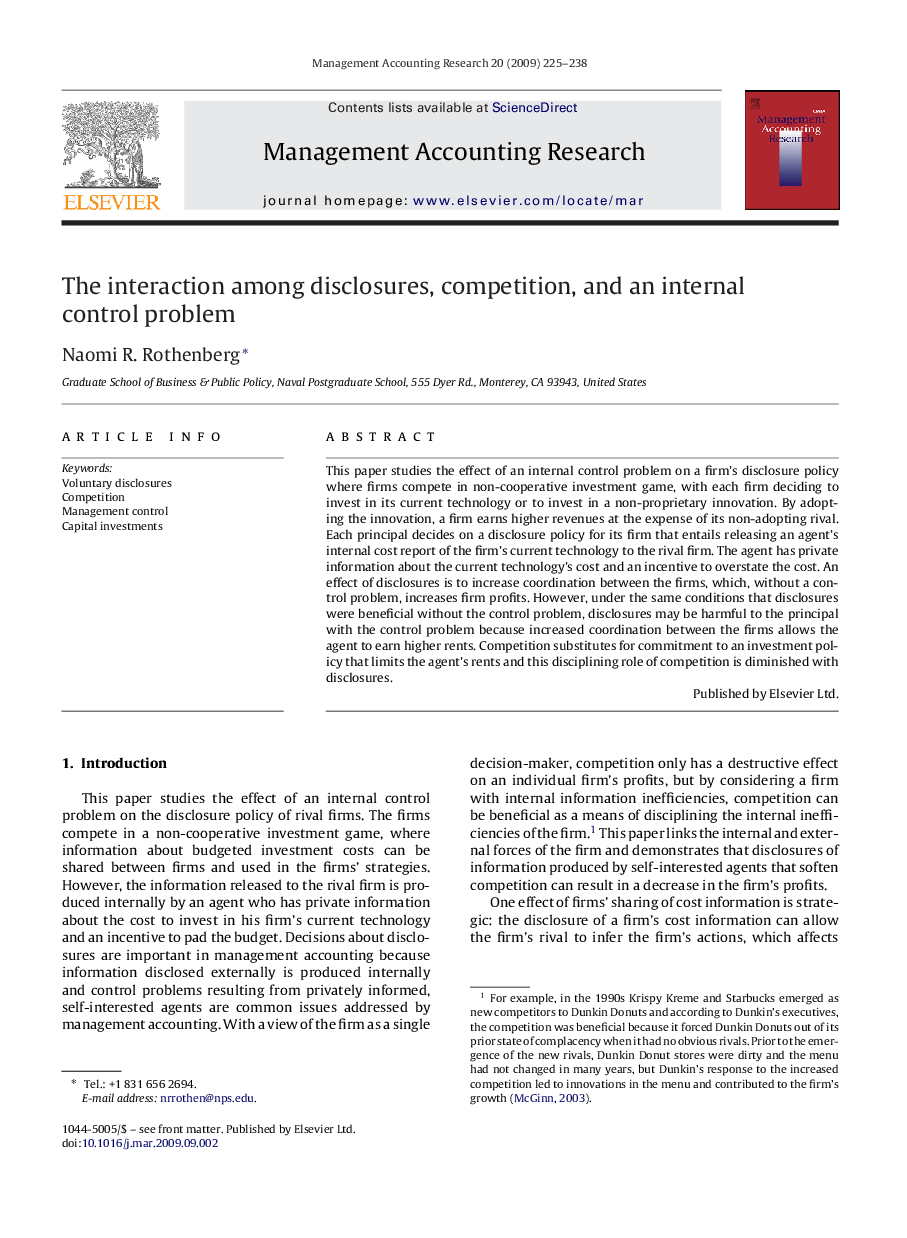| Article ID | Journal | Published Year | Pages | File Type |
|---|---|---|---|---|
| 1002886 | Management Accounting Research | 2009 | 14 Pages |
This paper studies the effect of an internal control problem on a firm's disclosure policy where firms compete in non-cooperative investment game, with each firm deciding to invest in its current technology or to invest in a non-proprietary innovation. By adopting the innovation, a firm earns higher revenues at the expense of its non-adopting rival. Each principal decides on a disclosure policy for its firm that entails releasing an agent's internal cost report of the firm's current technology to the rival firm. The agent has private information about the current technology's cost and an incentive to overstate the cost. An effect of disclosures is to increase coordination between the firms, which, without a control problem, increases firm profits. However, under the same conditions that disclosures were beneficial without the control problem, disclosures may be harmful to the principal with the control problem because increased coordination between the firms allows the agent to earn higher rents. Competition substitutes for commitment to an investment policy that limits the agent's rents and this disciplining role of competition is diminished with disclosures.
